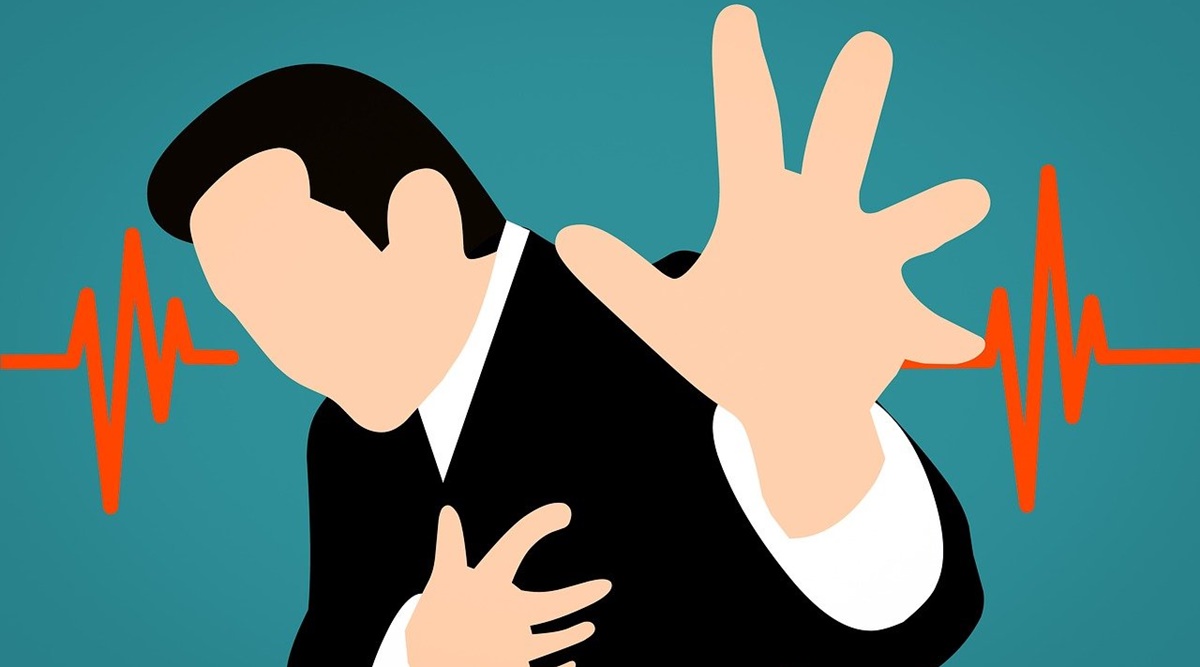 It can strike anyone at any age and in certain cases, people with no history of heart disease can also fall prey to it. (Photo: Pixabay)
It can strike anyone at any age and in certain cases, people with no history of heart disease can also fall prey to it. (Photo: Pixabay)Sudden cardiac arrest or SCA is one of the leading causes of death that can strike anyone at any age. In certain cases, it also affects people with no history of heart disease. It is a serious condition where the heart suddenly and unpredictably stops beating. Globally, 1 out of every 1,000 people loses their life to SCA every year. This is because SCA leads to slow breathing and collapse of the individual triggered by abnormal heart rhythms (known as cardiac arrhythmia), shares Dr Aparna Jaswal, cardiologist at Fortis Escorts Heart Institute, Delhi.
Can sudden cardiac arrest be reversed?
Dr Jaswal explains, “Time is very crucial in case of SCA as every minute counts for survival. With timely medical intervention, the patient can be saved. In more than 80% of the cases, it is seen that this happens due to blockages in the blood vessels of the heart. When the erratic beating of the heart or cardiac arrhythmia disrupts its pumping ability, it can lead to blockages which, in turn, cause difficulty in breathing and affect its functioning. This can be fatal if not treated on time,” says Dr Jaswal.
Who is at risk of SCA?
While there are many risk factors of SCA, the key factors are coronary artery disease and acute heart attacks. “According to the Cleveland Clinic, a person who has suffered a heart attack is at a much greater risk of SCA for the first six months, and nearly 75% of SCA cases are linked to this condition,” shares Dr Jaswal. Other risk factors include family history or previous episodes of SCA, or a history of congenital heart defects including defects in the blood vessels, heart failure, obesity, diabetes and drug abuse among others.
What are the warning signs?
Warning signs can range from shortness of breath, collapsing all of a sudden, discomfort in the chest, loss of breathing, unexplained wheezing and palpitations to many other symptoms.
How to manage sudden cardiac arrest?
“Cardiopulmonary resuscitation (CPR) is the recommended emergency action for managing SCA until proper medical assistance is available. The process involves chest compressions to manually restore blood circulation and breathing,” says the cardiologist. Dr Jaswal further explains that since the primary trigger of an SCA is an arrhythmia, which can be manifested by rapidly fast or abnormally slow heartbeats, “CPR helps in maintaining adequate oxygen supply to the brain till normal heart rhythm is restored medically.”
What happens after administering a CPR?
Post giving CPR, the patient should immediately be transferred to emergency care. “Here, the first step may involve a process called defibrillation, whereby, an electrical shock is administered through the chest wall to the heart to restore its normal rhythm,” says Dr Jaswal.
While the long-term treatment for SCA includes different methodologies depending upon the condition of the patient, the most common treatments include using implantation devices like ICDs or implantable cardioverter-defibrillation. “In this procedure, a small battery-operated power device is implanted on the chest to monitor and detect irregular heartbeats and is terminated through electric shocks,” says Dr Jaswal. Lastly, she adds that the only way to reduce the risk of arrest is to go for regular checkups and screenings of the heart while living a healthy lifestyle.
For more lifestyle news, follow us: Twitter: lifestyle_ie | Facebook: IE Lifestyle | Instagram: ie_lifestyle